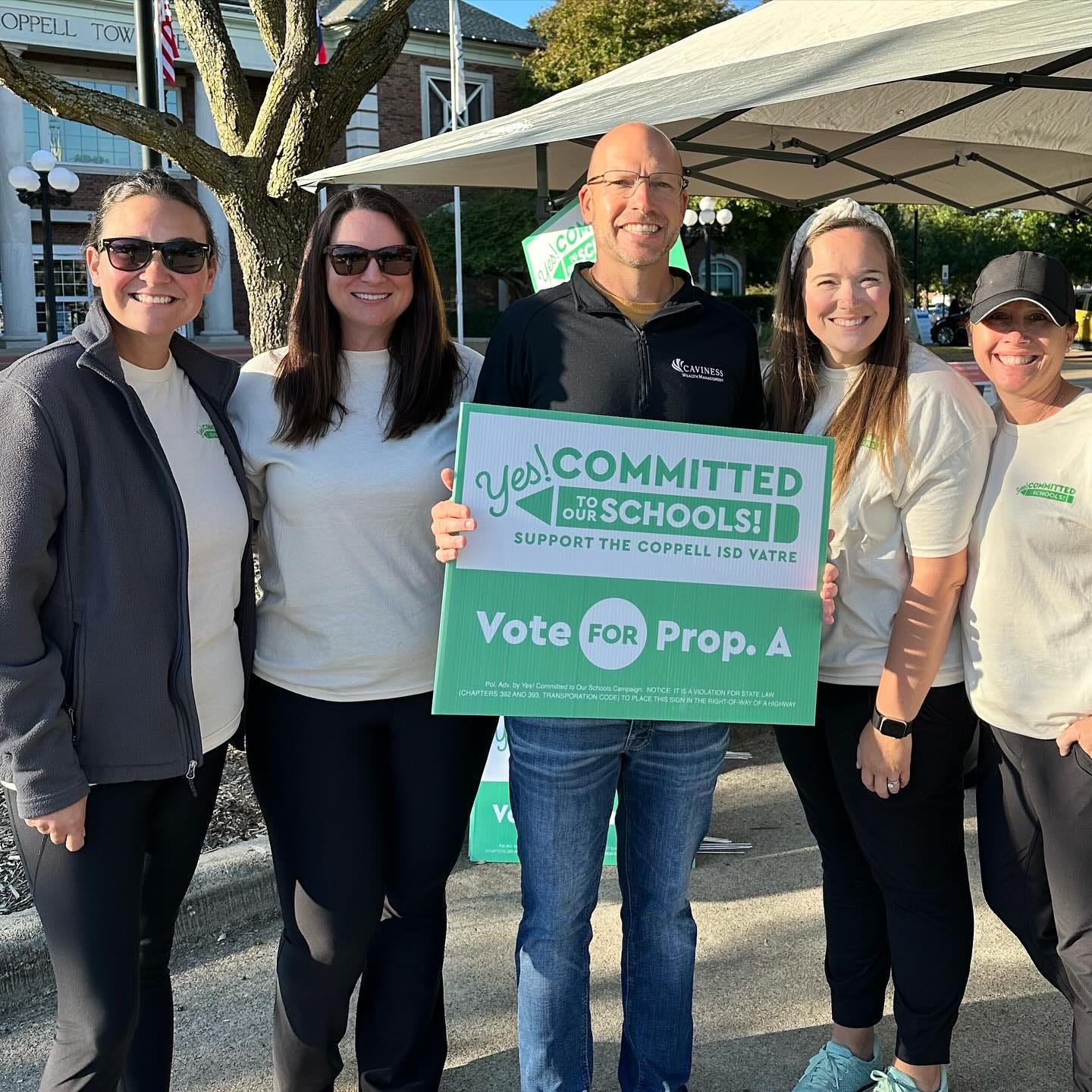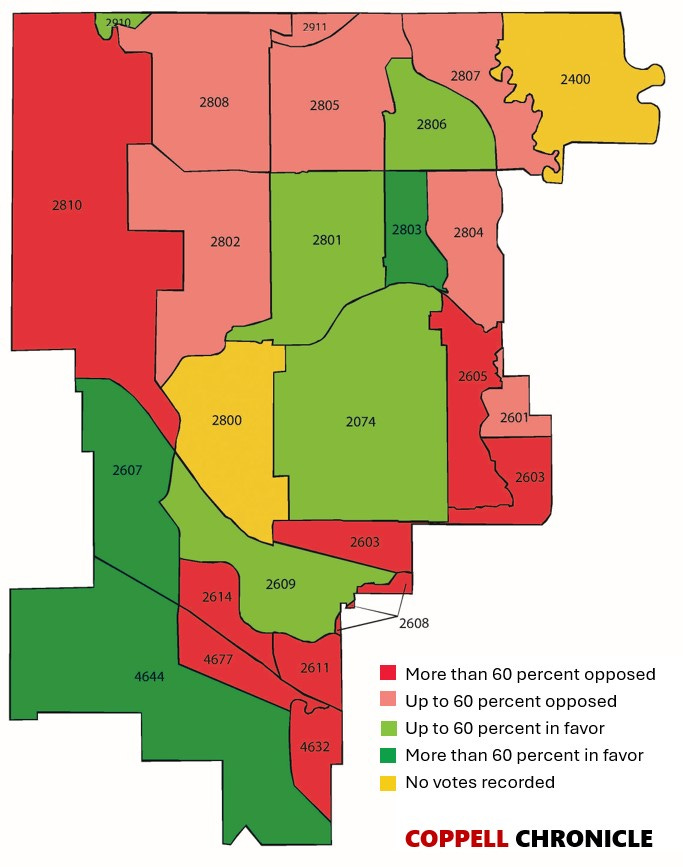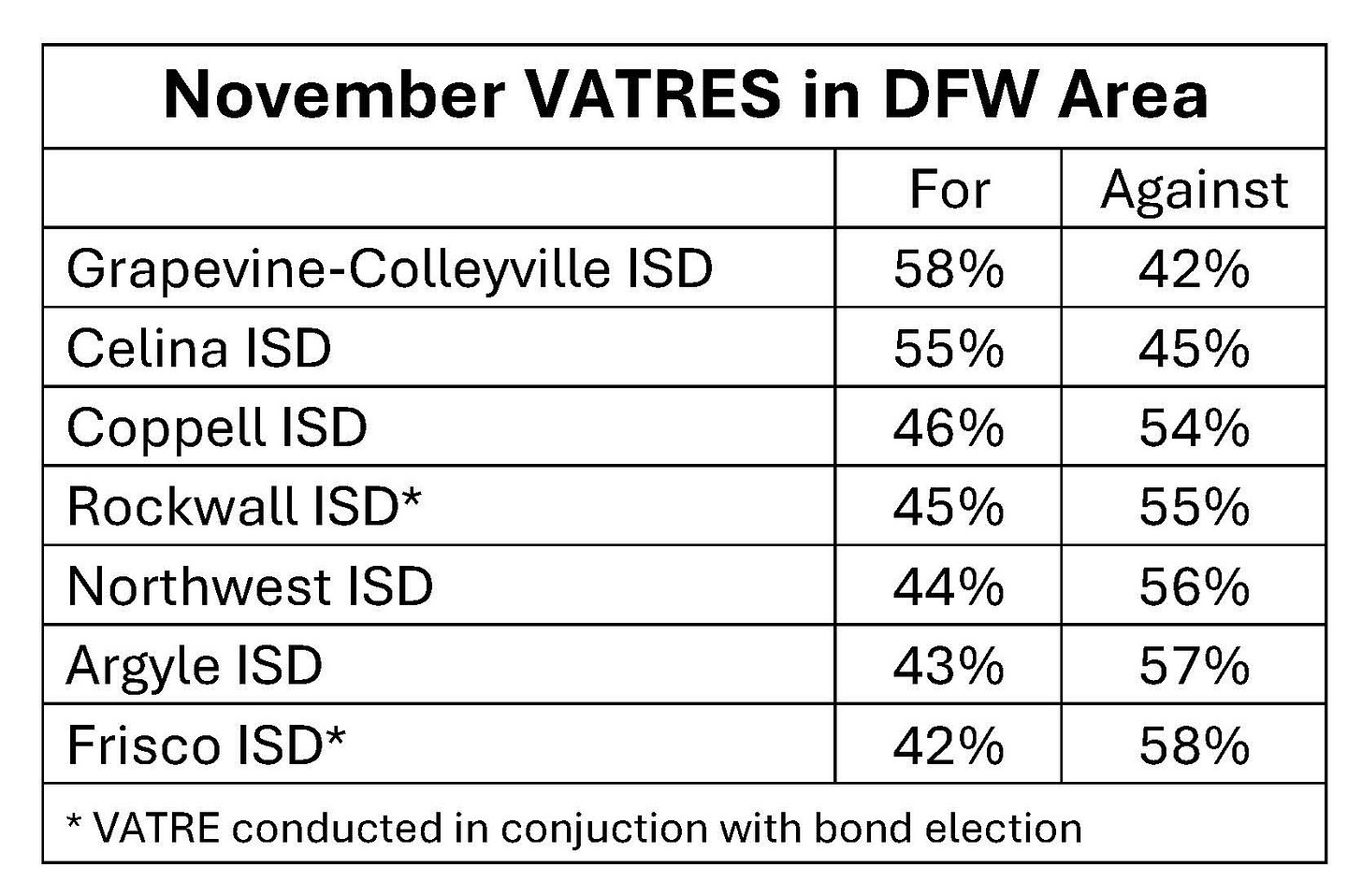Coppell Chronicle Vol. 4, No. 38
Voters Reject More Dollars for Schools • Which Candidates Did Well in Coppell? • Odds and Ends From Election Day • CFBISD Superintendent Takes Flak Again
I hope y’all aren’t tired of reading about election results, because you’re about to get a snootful. As always, click the linked names of Congressional, House, and Senate districts so you can giggle at their gerrymandered boundaries.
Voters Reject More Dollars for Schools

A majority of Coppell ISD voters — 54 percent of them, to be precise — rejected an attempt to raise more money for the district.
Under state law, a school district can add up to 17 pennies to its maintenance-and-operations (M&O) tax rate with voters’ approval. At one time, Coppell ISD’s tax rate included all 17 of those pennies, but a bill passed by the Texas Legislature in 2019 took away 3.17 of them. Tuesday’s voter-approval tax-ratification election (VATRE) was about restoring those pennies.
Had the VATRE been approved, the resulting tax rate would still have been lower than the current rate due to a state-mandated compression of the base rate. However, due to rising property values, the average Coppell ISD homeowner’s tax bill would have increased by $163. The district would have netted $2.4 million, but the VATRE would have sent $3.48 million to the state via recapture, aka Robin Hood.
Before I could figure out how to explain what this rejection means for the future of the school district, Superintendent Brad Hunt summed things up in a message published on Wednesday:
“The VATRE was a crucial component of the CISD 2024-2025 budget, and without its approval, the district will have to make more cuts to address the budget deficit,” he said. “These cuts could include additional school closures and program consolidations, staffing reductions, secondary schedule changes, and other significant measures to maintain financial stability and operational efficiency.”
Trudy Baade, Rebecca Bailey, Jill Hill, and Amanda Nevels are all Coppell ISD moms, and Baade is the only one who isn’t a former Coppell ISD student. They co-chaired a political action committee called “Yes! Committed to Our Schools” that urged voters to mark the “For” button on the ballot.
“Though we are saddened by this outcome, we will not let this setback stop us from supporting our wonderful Coppell schools and teachers,” they said in a statement posted on Facebook on Thursday. “We remain committed to advocating for this district, and we hope our community will stand alongside us as we navigate continuing challenges together.”
Here’s a look at how the VATRE vote broke down on a precinct-by-precinct basis.

When I told a friend that I was planning to publish that map, she said it might be useful as the Coppell ISD trustees decide which schools to close next. However, the strongest opposition to the VATRE was in the Irving precincts, which are served by the district’s newest and most crowded elementary schools. Those campuses aren’t in danger of closure.
Looking at the precincts within Coppell’s city limits, you can see that the ones that supported the VATRE the most are zoned to Austin, Lakeside, and Mockingbird. If your kids go to Town Center or Cottonwood Creek, buckle up for a bumpy couple of years.
Coppell ISD was one of seven school districts in the Dallas-Fort Worth area that put VATRE propositions on the November ballot. Only two of them passed.
Perhaps these VATRE results won’t matter in the long run. Although our state government hasn’t increased the basic allotment to school districts since 2019, Gov. Greg Abbott has promised to boost schools’ funding if the Legislature sends him his desired bill creating vouchers, or “school choice” as he calls it.
Speaking of the Legislature …
Which Candidates Did Well in Coppell?
Democrat Cassandra Hernandez will represent most of Coppell and Coppell ISD in the Texas Legislature, because she was preferred by 54 percent of the voters in House District 115. She will succeed Julie Johnson, who was favored by 57 percent of voters in each of her victories over Republicans Matt Rinaldi (2018), Karyn Brownlee (2020), and Melisa Denis (2022).





